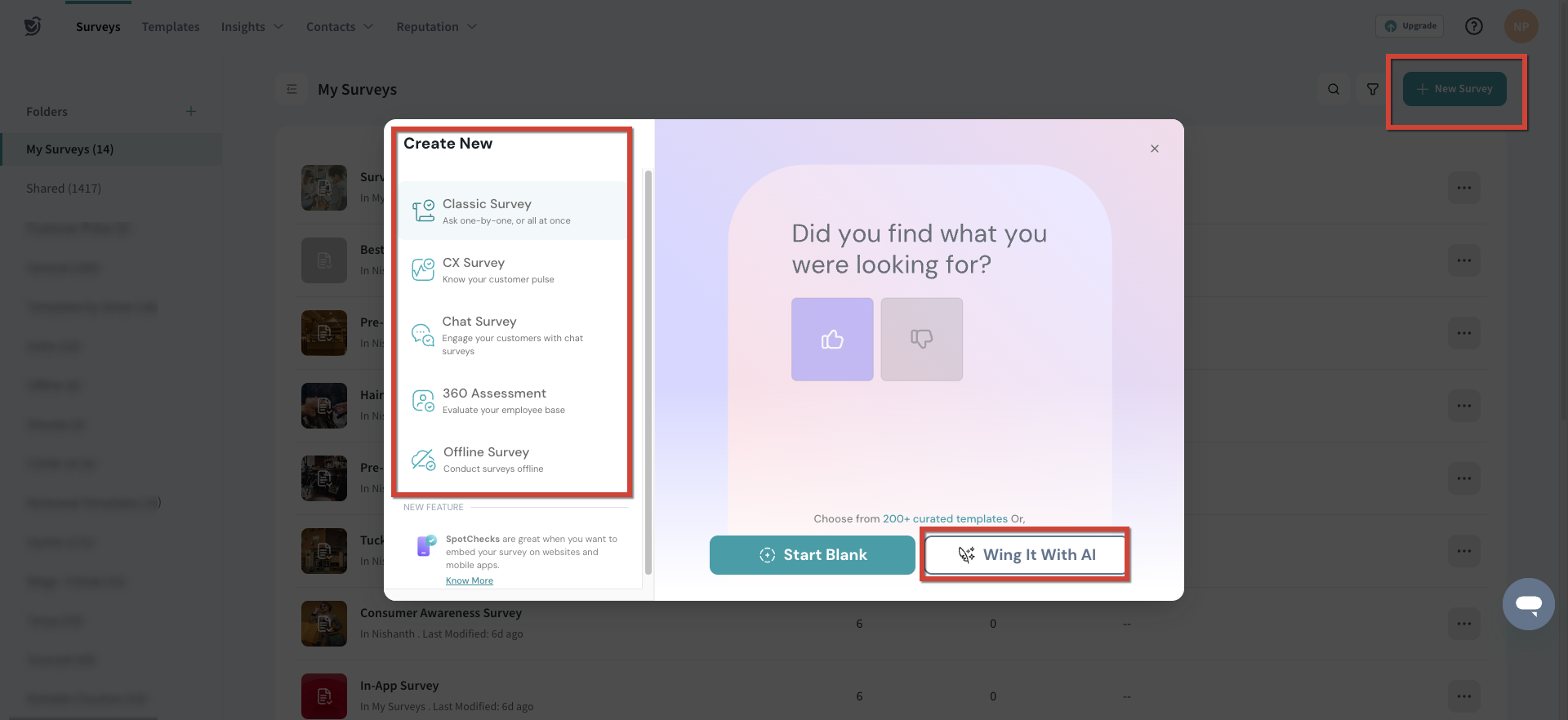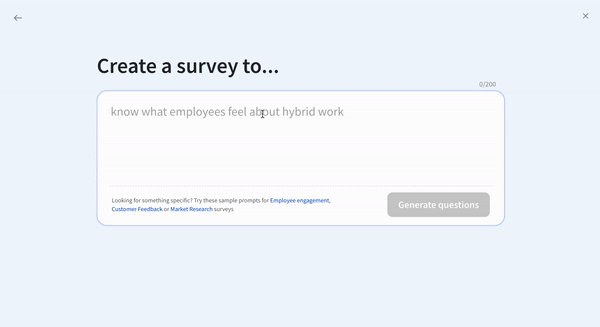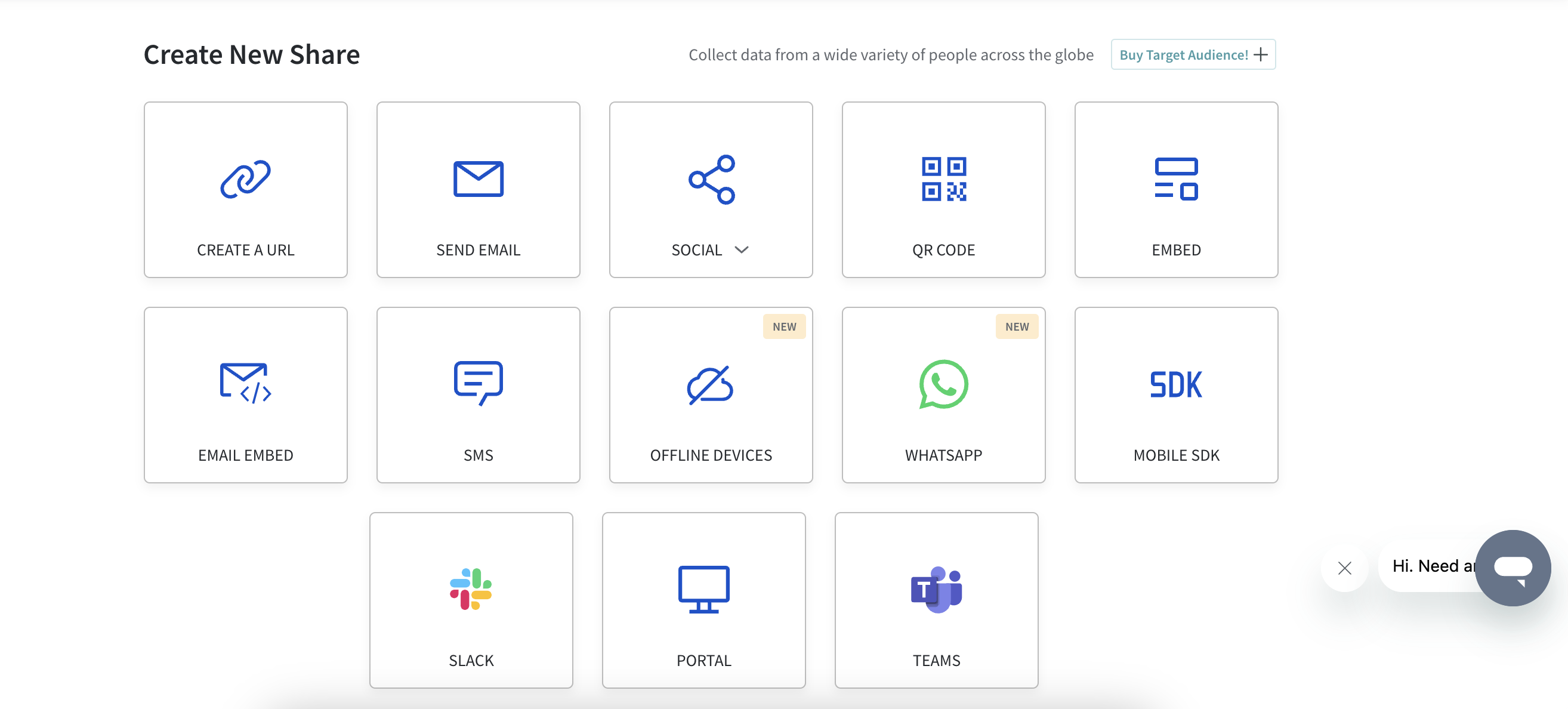Survey & Feedback
Election Polls 101: How to Conduct, Best Practices, Free Template
Article written by Vishak V
Frustrated developer turned joyous writer.
10 min read
19 September 2025

The election heat is here, so it’s time to share election polls.
A successful election campaign is not about being present on every billboard. Not. It’s about showing presence where it actually matters. Conducting election polls can be an effective way for this.
In this blog, we will discuss –
- What are election polls
- Perks of conducting it
- 5 simple steps to conduct election poll
- Election poll questionnaire
- Examples of election poll questions
- Best practices to follow
Let’s delve into it.
What are Election Polls?
Election polls are often used to survey/poll the general public or a particular demographic to gather their pulse and engagement, their understanding of the electoral candidates, what to expect during the voting polls, and forecast the polling results.
The poll results are then dived into deeply to derive insights and make informed decisions. For example, if an election poll reveals that it is less likely for a particular candidate to win the opinion poll or election poll, then they can analyze their election campaigns deeply to tabulate what’s not working.
Here’s a quick election poll/opinion poll created using SurveySparrow.
Sign up for FREE to conduct an election poll now!
14-day free trial • Cancel Anytime • No Credit Card Required • No Strings Attached
Perks of Conducting an Election Poll
Consider an opinion poll like this one here:
In the coming 2024 elections, who are you planning to vote for?
- Democrats
- Republicans
- Oh, I’m not voting.
A quick election poll like this one helps you gain a deeper understanding of the general public. It gives you a fair idea of what to expect in the exit polls. The sooner you gather the demographic’s sentiments, the longer you have to boost your campaigns and media presence.
The intention behind rolling out election polls is different for different parties. Sometimes an opinion poll or electoral polls are rolled out to find out if any group of people/constituency has any major concerns that need immediate resolutions.
Sometimes, they are rolled out to understand if people even care to vote – they can then use the data collected to educate people on the importance of voting. This helps them take necessary precautions and preparations for the election campaigns. Sometimes, an election poll can be rolled out to educate people about the candidates contesting and their agendas for the upcoming elections.
How to Conduct an Election Poll – 5 Simple Steps
Here are four 5 simple steps for you to conduct an election poll with SurveySparrow.
Step 1 – Sign Up
It’s obvious, ain’t it? You have to sign up to use the tool. Don’t worry – the tool offers a free-forever plan and a 14-day free trial. Use the form below to sign up for free.
14-day free trial • Cancel Anytime • No Credit Card Required • No Strings Attached
Step 2 – Select Survey
Upon sign up, you will be redirected to your dashboard. Click on the “+ New Survey” to create your election poll. Once you click a pop up will come – something like the following.

Skip 360 Assessment and choose a survey format to create your election poll.
PRO TIP:
You can also try generating your election poll with the help of SurveySparrow AI. It’s similar to ChatGPT. Just add in the prompt and the tool will do the rest. Here’s a sample of how the feature would look like.


Step 3 – Choose the Questions
If you have not tried the AI, and chose to create one from scratch on your own – it’s time to decide on the poll questions. Go through the election poll questions we discussed (and examples) and start writing tailored questions relevant to your audience.
There are 20 different poll questions you can choose from. Understand the goal behind each question and choose wisely.
Step 4 – Design
There will be some designed templates you can use from. There’s an option for you upload custom deagins as well. If you have developers, then feel free customize the design with CSS.
PS – White labeling is also available, meaning you can customize the poll to resemble your brand in every way possible.
Step 5 – Share Poll
With all set, there’s only one thing to do now – share the poll. Unlike other poll makers – SurveySparrow offers a wide range of channels to share you poll. This include but are not limited to WhatsApp, SMS, QR code, and Slack.

Now, to analyze poll results, SurveySparrow offers an advanced AI-powered feature – CogniVue. No matter the size of the poll, this feature helps you easily analyze the results and help you understand voter sentiments, key drivers, and so on.
Hope you were able to create the poll successfully.
Now, let’s have a look at the poll questions you need to focus on while creating an election poll.
3 Types of Election Poll Questions to Include
There are different sets of questions to ask in an election poll. Below are some questions to include in your election poll survey. Have a look at them.
Voter Participation Questions
Start by understanding whether the people are ready to participate in the election or not. The aim here is to measure the participation and the enthusiasm of voters.
The following are some poll questions you can add.
- How likely are you to vote for the upcoming election?
- When was the last time you voted (national or local elections)?
- Do you discuss the election with any of the following?
- What factors influence you to vote?
- Is there any particular reason you are not voting this year?
Political Affiliation Questions
Voters with political affiliations are often sure of the candidate they endorse or vote for. These sets of questions help us understand how the voting will be and how close the election could be. Also, such questions pave the way for more accurate results.
Following are some questions to consider.
- Do you have any political affiliations?
- Which political party do you support?
- Why did you choose your current political affiliation?
- How long have you been part of the political party?
- Explain the reason for your political affiliation.
Candidate Evaluation Questions
This is to understand the perception of electorate candidates among voters. You can use these questions to understand the quality voters see (or seek) in candidates, which explains voter choices.
TIP – Knowing customer perception can help tailor election campaigns and attract more voters.
Here are some questions to look into.
- How would you rate the presidential candidates for the year?
- Would you consider voting for the same presidential candidate again?
- What are the qualities you look for in a candidate?
- How do you evaluate a political candidate?
- Are there any particular issues you want the candidates to focus on in debates?

Examples of Election Poll Questions
The following are some examples of poll questions you can ask during an election poll in the US.
1. Did you register for the upcoming 2024 election?
- Yes
- No
2. How likely are you to vote for the upcoming election?
- Very likely
- Likely
- Unlikely
- Very Unlikely
- Nope, I’m not voting
3. Who are you planning to vote for in the election?
- Democrats
- Republicans
- Haven’t decided yet
- Neither
4. Do you think media and live debates influence your vote?
- Definitely
- Maybe
- Maybe
5. Do you think Donald Trump has a chance to win the presidential campaign?
- Definitely
- Maybe
- No
6. Which of the following best describes your political identity or affiliation?
- Republicans
- Democrats
- Libertarian
- Independent
- Others
Now, let’s have a look at some of the best practices you need to follow.
4 Best Practices to Conduct an Election Poll Properly
Simply coming up with some random questions and sharing them with the public ain’t enough. It’s all about precision. The following are some best practices to follow when conducting an election poll.
#1. Always ask the right questions
Asking the right questions goes a long way in receiving the right answers. If getting people’s climate on the upcoming election is the intention behind political polls, then wrap your questions strictly around that.
#2. Keep your poll short
Keep your poll as short as possible – like one of those mutual funds ads you see on television. The lengthier your poll is lesser the poll completion rate. Also, make sure you’re asking shorter questions as well. No one wants to read an election poll question that’s 50 words lengthy.
#3. Time your polls
Choosing the right time to go live with your electoral polls or opinion polls is an art – an art mastered by only a very few. Also, It’s best advised to have a deadline for your polls – but please let your survey respondents know that the polls come with an expiry date.
#4. Share your polls across the right channels
It’s also important to choose the right channels to share your opinion or election polls. You can share/embed it on emails, SMS, WhatsApp, or other major social media channels.
How Accurate are Election Poll Data?
For any online poll, there’s a good chance that a sampling error sneaks in. Sampling error usually occurs when there’s no sample size chosen for any poll or survey. If this occurs, one can’t really take actionable steps on the poll/survey data because the sample chosen does not actually represent the demographic that needs to be surveyed/polled.
Read how to use a sample size calculator for a poll here.

Create engaging surveys that people actually complete. Try SurveySparrow now!
Vishak V
Product Marketer
Related Articles

Survey & Feedback
50 Consumer Behavior Survey Questions (Free Template + Examples)
5 MINUTES
30 January 2022

Survey & Feedback
SurveySparrow Ranks Tenth in the Top 20 Survey Software List by Capterra!
2 MINUTES
14 August 2018

Survey & Feedback
What is an Online Panel Survey? Types, Definitions & Tips to Build one
13 MINUTES
21 June 2018

Survey & Feedback
Purposive Sampling 101: Definition, Types, And Examples
12 MINUTES
22 January 2022
